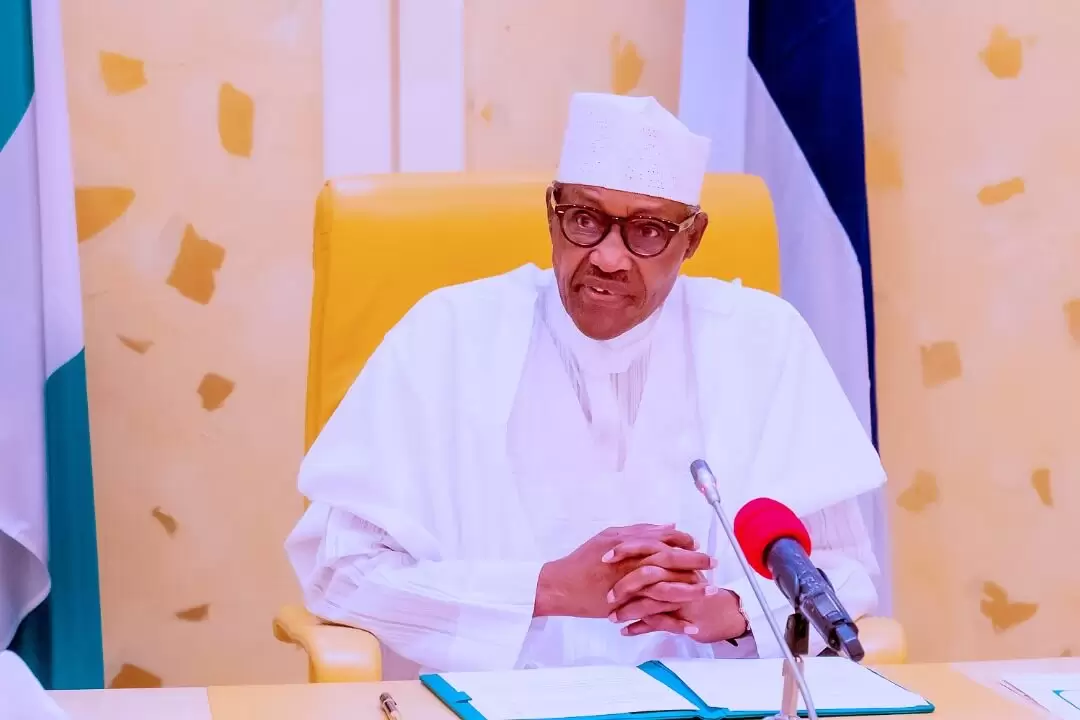Buhari Discriminated Against Women, PWDs In Appointment Of 19 INEC RECs – Electoral Hub
Electoral Hub, a multidisciplinary think tank dedicated to strengthening electoral governance and accountability in Nigeria, has faulted inadequate representation of women and Persons with Disabilities (PWDs) in President Muhammadu Buhari’s recent appointment of resident electoral commissioners.
Buhari had last week sent 19 names to the Senate for confirmation as RECs of the Independent National Electoral Commission (INEC).
Advertisement
Out of the nominations, five were for renewal while 14 others were fresh appointments.
They include Ibrahim Abdullahi (Adamawa – Renewal); Obo Effanga (Cross River – Renewal); Umar Ibrahim (Taraba – Renewal); Agboke Olaleke (Ogun – Renewal); and Samuel Egwu, a professor, (Kogi – Renewal).
Others are Onyeka Ugochi (Imo); Muhammad Bashir (Sokoto); Ayobami Salami, a professor, (Oyo); Zango Abdu (Katsina); Queen Agwu (Ebonyi); and Agundu Tersoo (Benue).
Also to be confirmed are: Yomere Oritsemlebi (Delta); Yahaya Ibrahim, a professor, (Kaduna); Nura Ali (Kano); Agu Uchenna (Enugu); Ahmed Garki (FCT); Hudu Yunusa (Bauchi); Uzochukwu Chijioke, a professor, (Anambra); and Mohammed Nura (Yobe).
Advertisement
But reacting in a statement made available to THE WHISTLER on Monday, Electoral Hub, which is an organ of the Initiative for Research, Innovation and Advocacy in Development (IRIAD), criticised the composition of the appointments.
While commending Buhari for the timely nomination of the appointees, the think tank’s Director, Princess Hamman-Obels, said they were “dismayed at the poor representation of women and People with Disabilities (PWD) in these appointments.”
Hamman-Obels’ words: “The President failed to use this opportunity to right the poor gender representation in his administration with only three women appointees out of the nineteen new appointees. Out of these new appointees, it is unfortunate to note that only 15.8% are women, and there is no PWDs representation. 15.8% is an extremely poor representation. This trend is also replicated at the National level with only two women National Commissioners (15.4%) out of 13 members Commission and no PWD. The National Gender Policy provides for at least 35% representation for women. The Abuja Federal High Judgement of 6 April 2022 also affirms this provision. This action and the dismal figure are discriminatory against women and a violation of Sections 14(3), 42, and 147 (3) of the Constitution of the Federal Republic of Nigeria, Articles 2, 13, and 19 of the African Charter on Human and Peoples Rights and Articles II and IX of the Maputo Protocol.
“The poor state of inclusion at the Commission is deplorable. As the primary electoral management body (EMB) responsible for presidential, governorship, and legislative elections across the country, INEC has the power to promote gender inclusion in the electoral process. However, its ability to do this will be limited if it is not gender-inclusive internally.
“Given the poor state of women’s representation in decision-making processes in Nigeria, it is imperative to have an all-inclusive EMB (gender and PWD inclusive EMB) that can further drive the inclusion of women and other marginalised groups. We, therefore, call on the government to implement the National Gender Policy, which calls for at least 35% affirmative action for women in elective and appointive offices, and Sections 29 and 30 of the PWDs (Prohibition) Act 2018 which mandate the government to ensure that PWDs can effectively and fully participate in the conduct of public affairs without discrimination with at least 5% inclusion. Future appointments must take this principle seriously, otherwise, we risk completely marginalizing women and other vulnerable groups from meaningful participation in public life.
Advertisement
“Our demands will not only improve the status of marginalised groups – women and PWDs but also promote democratic consolidation in Nigeria. This is because the democratic principles of participation, representation, and inclusion will be better adhered to when women and other marginalised groups are included in democratic institutions and practices. It is our hope that subsequent nominations into INEC and other public institutions will be more inclusive and equitable.
“The Electoral Hub, therefore, urges the PRESIDENT to comply with the Constitution, National Gender Policy, and PWD Act and ensure that subsequent appointments in all facets of governance in Nigeria abide by the principles of inclusivity, equity, fairness, and justice. “



